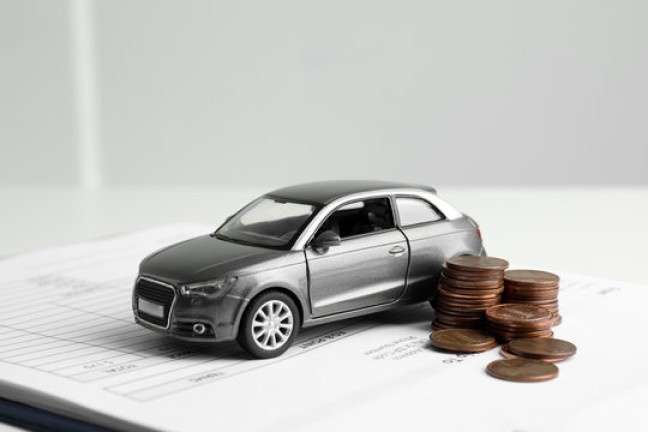Buying a car is often an exciting milestone, but it can also come with some risks. One of the more unsettling experiences is discovering that your car is a “lemon” – a term used for vehicles that, after purchase, prove to be defective or prone to constant breakdowns. If you’ve found yourself in a situation where you’ve purchased a lemon, or you’re thinking about buying a used car that could potentially be one, understanding the financing options available to you is critical. In this article, I’ll dive deep into banks and other financial institutions that might help you secure a loan for a lemon car and explore different factors that come into play.
Before we get into the specifics of banks that finance lemon cars, let’s first understand what exactly a “lemon” car is. It’s important to recognize the signs of a lemon vehicle and how financing might differ when dealing with one.
Table of Contents
What Is a Lemon Car?
A lemon car is one that has significant defects or issues, typically related to safety, performance, or reliability, which are often unfixable even after multiple repairs. The term is legally defined in many places, particularly in the United States under the Lemon Law, which provides a remedy for purchasers of such vehicles. To be considered a lemon, the car must usually have a major defect that is covered by the warranty and cannot be fixed after a certain number of attempts, or it must have been out of service for a certain number of days.
How Does Financing a Lemon Car Work?
Financing a lemon car can be tricky. Traditional banks may hesitate to offer loans for cars with known defects, and in some cases, they may outright refuse. When purchasing a used car, there’s a significant risk that the car could end up being a lemon, which might make getting financing more complicated. However, that doesn’t mean it’s impossible. Banks and other lenders have different criteria and approaches when it comes to financing lemon cars, and some may be more flexible than others.
Banks That Might Finance Lemon Cars
When I researched which banks finance lemon cars, I found that there are generally two categories of banks involved:
- Traditional Banks
- These banks tend to be more conservative when it comes to auto loans. They may be reluctant to approve a loan for a car that’s over a certain age or that has an unclear history. However, there are still some cases where banks may consider financing lemon cars, particularly if the borrower has a strong credit history.
- Specialized Lenders
- Some lenders specialize in high-risk loans, including those for individuals purchasing lemon cars. These lenders are more likely to approve loans for used cars, regardless of whether they are lemons. They typically charge higher interest rates to offset the risk.
Key Factors Banks Consider When Financing a Lemon Car
Let’s break down the key factors that banks and lenders look at when deciding whether to finance a lemon car:
1. The Car’s Age and Condition
Banks will usually assess the car’s age and general condition. A new car or a relatively new used car is much easier to finance than an older model, especially if it has a history of defects. A car that’s five or more years old might be seen as more of a risk, especially if it’s had multiple repairs done. I’ve found that if the car is clearly labeled as a lemon, banks may hesitate to lend money for its purchase due to the risk of future repair costs and legal issues.
2. Your Credit Score
Your credit score plays a significant role in the financing process. A strong credit score may give you more leverage when negotiating the terms of your loan, even if the car is a lemon. In contrast, if you have a low credit score, banks might consider you a higher-risk borrower and offer you less favorable terms.
3. The Vehicle’s Market Value
The market value of the vehicle can also influence the financing decision. If a car is considered a lemon but still holds value, some banks may be more willing to offer financing. However, if the car has little resale value or is likely to devalue quickly, the bank may consider it too risky to finance.
4. Warranty and Service History
A key factor that lenders will look at is the warranty and service history of the vehicle. If the car is still under warranty and has a solid service history with no significant recurring issues, this can help reassure banks about its condition. However, if the warranty has expired and the vehicle has a history of repeated failures, it becomes a much harder sell for financing.
Types of Loan Products for Financing Lemon Cars
When looking at financing options for lemon cars, the type of loan you get can vary. Some common options include:
- Secured Auto Loans
Secured loans are typically easier to obtain, especially if you can use the car itself as collateral. However, with a lemon car, the collateral may not hold much value. Secured loans also tend to have lower interest rates, but if the car has significant defects, the risk for both you and the lender increases.
- Unsecured Personal Loans
If you cannot get a secured auto loan, an unsecured personal loan could be an alternative. These loans don’t require collateral, but they come with higher interest rates. This type of loan might be a good option if you’re financing a lemon car and are concerned about the value of the car itself.
- Buy Here, Pay Here Financing
Some used car dealerships offer “buy here, pay here” financing, where the dealer itself acts as the lender. While these deals may seem appealing, they often come with high-interest rates and may be more likely to finance lemon cars. However, it’s important to thoroughly research the dealership and understand the terms before proceeding.
How to Improve Your Chances of Getting Financing for a Lemon Car
If you’re set on financing a lemon car, here are a few strategies to improve your chances:
- Provide a Large Down Payment
- Offering a larger down payment can show the lender that you are financially responsible and serious about the loan. It may also reduce the loan amount, making the deal less risky for the bank.
- Consider a Co-Signer
- If you have a co-signer with strong credit, this can increase your chances of securing a loan. The co-signer assumes responsibility for the loan if you can’t make payments, which reduces the lender’s risk.
- Explore Special Financing Programs
- Some financial institutions offer special financing programs for high-risk loans, including those for lemon cars. These programs are designed for individuals with less-than-perfect credit and may be worth exploring.
Banks and Lenders to Consider
Some banks and lenders might be more open to financing lemon cars. Based on my research, here are a few options to consider:
| Bank/Lender | Type of Loan | Pros | Cons |
|---|---|---|---|
| Capital One | Secured and Unsecured Loans | Offers competitive interest rates | May be hesitant to finance high-risk cars |
| OneMain Financial | Personal Loans | Specializes in high-risk loans | High interest rates |
| LendingClub | Personal Loans | Flexible terms, good for low-credit buyers | High-interest for lemon car purchases |
| Carvana | Buy Here, Pay Here | Easy approval process, wide selection | High-interest rates |
| LightStream | Secured Loans | Low interest rates, good customer service | May not approve for lemon cars |
Conclusion
Financing a lemon car can be a challenging experience, but it’s not impossible. While traditional banks might hesitate to finance cars with known defects, specialized lenders and non-traditional financing options offer alternatives that could help. I’ve learned that the key to securing financing for a lemon car is to understand the risks involved, offer a substantial down payment, and consider working with a co-signer or a specialized lender. By doing your research and exploring all of your options, you can increase your chances of securing financing, even if the car you’re interested in is less than perfect.
Before you make a final decision, make sure to consider the long-term costs and the possibility of dealing with a lemon car. It might be worth it to look for a car with a better warranty or a more reliable history, as the costs associated with lemon cars can add up quickly. Whatever route you decide to take, I hope this guide helps you navigate the financing process with greater confidence.





